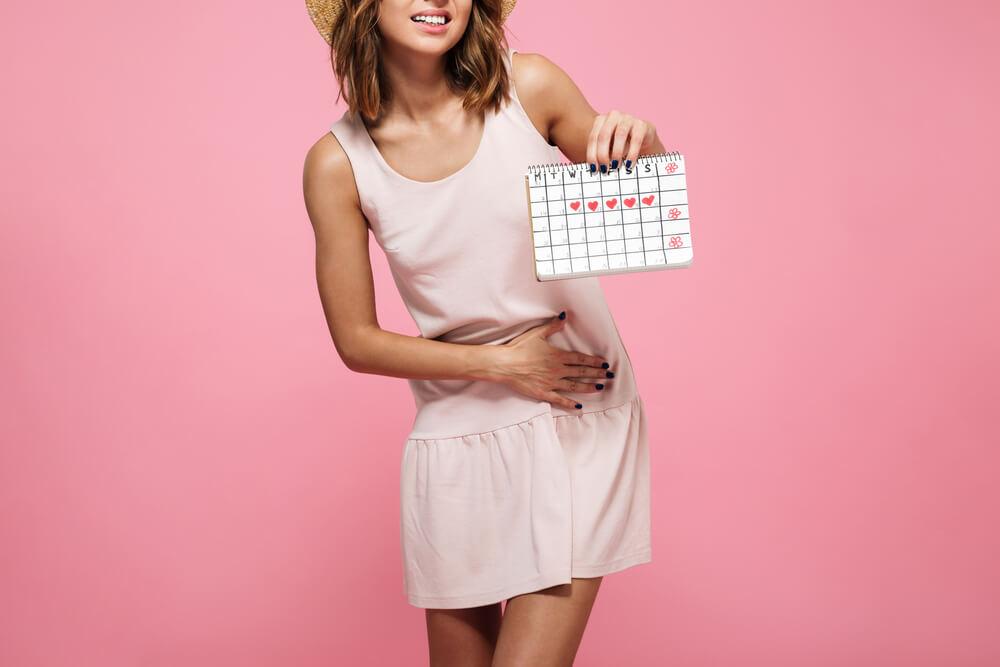In general, there’s no ovulation while breastfeeding. Actually, breastfeeding your baby exclusively for the first six months is generally considered to be natural birth control. Namely, to produce milk, your body also produces high levels of a hormone called prolactin. This hormone, in turn, suppresses the production of ovulation hormones. However, it’s not recommended to rely only on breastfeeding as birth control as you could still get pregnant. It’s nice to give your baby a little sibling soon, but getting pregnant sooner than two years postpartum is not recommended in terms of the mother’s health. Therefore, you should also use some other form of birth control during this period. The thing with breastfeeding is that it’s rarely ever exclusive for the entirety of six months. What’s more, your body’s production of prolactin might start decreasing sooner than expected.
To get rid of any doubts or worries you may have as you start planning to expand your family, it would be best to see a preconception and obstetrics specialist.
6 Signs of Ovulation While Breastfeeding
If you start ovulating while still breastfeeding, you can get pregnant. Every woman is different, meaning that when and what signs of ovulation after giving birth will show depend on the individual.
1. You Got Your Period

Getting your period is a clear sign of returning fertility while breastfeeding. If the egg is released and you bleed, you can expect ovulation to follow as well. If you don’t want to get pregnant again so soon after giving birth, start using some other form of birth control. Of course, if you so desire, you could use this chance to start planning another pregnancy, but, as mentioned, that’s not the best health decision. Pregnancies in such short intervals do carry certain risks.
2. Cervical Mucus Gets Lighter
Pay attention to your discharge. If suddenly the cervical mucus goes from sticky and thick to being rather light and clear to the point of making you feel wet, you are ovulating, and pregnancy after ovulation is more than possible.
3. Slight Temperature Rise
If it was common for you to feel a bit feverish post ovulation before you got pregnant, and you start feeling seemingly random increases in temperature again, this could be one of the signs of ovulation while breastfeeding. Obviously, this slight increase is nothing concerning, as long as it’s not a really high fever, but it should tell you it’s time to start tracking your menstrual patterns again.
4. Cramping
Another one of the signs of ovulation after giving birth is probably not the one you missed. Once you start feeling the cramps in your abdomen again, you’re probably resuming your menstrual cycle. Cramps actually stop when the egg gets released, which is when you’re at your most fertile phase of the cycle.
5. A Libido Boost
Some of the signs of returning fertility while breastfeeding will present themselves in the body’s desire to put that fertility to good use. With estrogen surging again, you will probably notice that your inclination for sexual intercourse is higher than before. And with a boost in estrogen and libido, also comes ovulation.
6. Tender Breasts
Just like cramps, breast tenderness is part of the menstrual cycle that could also signal ovulation while breastfeeding. Of course, breasts will be tender because of breastfeeding too, which is why you should also pay attention to other signs of ovulation while breastfeeding. You should differentiate breast tenderness from actual breast pain; if you feel like something’s wrong and the pain doesn’t seem to subside, make sure to talk to your doctor.
Why Isn’t It Recommended to Get Pregnant So Soon?
Even if you recognize signs of returning fertility while breastfeeding, that doesn’t necessarily mean you should rush to get pregnant again. You may want a big family, and that’s perfectly fine and possible, but patience is recommended as it will generally be safer and healthier for both you and the fetus.
Basically, going through labor causes bodily trauma, especially in the case of women who went through a C-section. As such, the body needs time in order to recover. Even if your previous pregnancy went perfectly, forcing your body through another pregnancy so soon could lead to complications with both your and your child’s health. Sometimes, the complications can be so serious that they can lead to worst-case scenarios. For some women, just dealing with the early signs of pregnancy again so fast could be dangerous.
When you look at the bigger picture, it pays off to be patient. What’s more, your kids will get along just fine with a couple of years of an age difference. It will also be a lot easier for you to take care of a baby and a toddler at the same time, instead of two babies.
How to Exclusively Breastfeed?

You can try and avoid ovulation while breastfeeding by committing yourself to exclusively breastfeed your baby for the first six months. However, keep in mind that, in practice, this is actually rather difficult. Less than 33% of women manage to exclusively breastfeed during just the first three months. But, if you’re set on this goal, there are some practices that could help you reach it:
- Educate yourself about the process of breastfeeding even before it’s time to give birth. That way, you’ll be more prepared for it once the baby comes.
- After you give birth, you’ll have a chance to consult with a lactation specialist in the hospital. Make sure to have them explain every single detail to you. Don’t hesitate to ask whether they make home visits as well.
- If you want to breastfeed exclusively, and there’s no medical reason not to, then you obviously cannot use anything else in your baby’s diet. So, no formula or water is allowed.
- You have to listen to your baby during this period. Whenever your child wants to eat, you should feed them. The more frequent you breastfeed, the better your breast milk production will be. In general, anywhere between eight and twelve feedings in 24 hours are ideal.
- The fact is that prolactin production is the highest during the night. Milk pumping or feeding your child at night will further boost prolactin levels.
- Make sure not to use any pacifiers or bottles during this period in order to stimulate oxytocin production through the baby’s sucking.
Following these tips is likely to postpone the return of your ovulation and menstrual cycle. On the other hand, if you’re looking for signs of ovulation after giving birth with anticipation, you should change your habits. In that case, you should minimize the number of breastfeeds, start introducing formula and bottles, and ultimately, avoid getting too stressed about it.
It’s true that things can get a bit confusing in regards to the menstrual cycle after you give birth. However, in most cases, it’s your habits and choices that can affect just how fast you’ll start ovulating again. Still, it’s important to mention that it’s not a good idea to rely just on breastfeeding as birth control if you don’t want another pregnancy.
Of course, don’t hesitate to get in touch with us at University Park OBGYN if you’re in need of any advice or medical help when it comes to your reproductive health. You’ll be in the hands of the best gynecologist in Florida whom you can fully trust and open up to.


